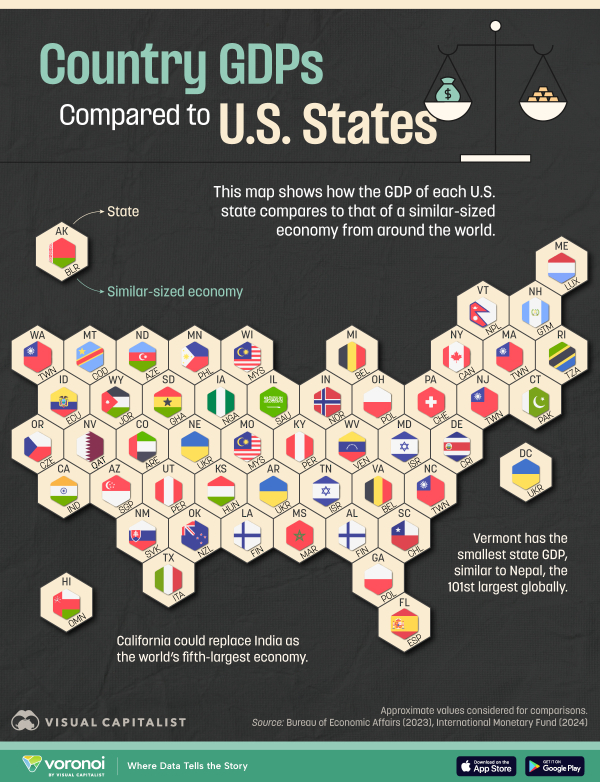With Trump's election win, the economy will likely be center stage.
Crypto boomed post-election, and the S&P and the Nasdaq reached new highs as the Fed cut rates.
Amidst all the political turmoil, it's easy to overlook how well-positioned we are as a country – compared to the rest of the world.
VisualCapitalist created a chart comparing countries' GDPs to those of U.S. states.
 via visualcapitalist
via visualcapitalist
At the top of the list, California would be the world's fifth-largest country (replacing India) with its $3.9 Trillion GDP.
In second place on the list, my home state, Texas, had a $2.6 Trillion GDP. For a little more context:
- If Texas were a country, its GDP would fall just behind France ($3.1 Trillion) and above Brazil and Italy ($2.3 Trillion).
- The Texas GDP is also higher than Canada's $2.24 Trillion GDP.
For a bit of contrast (and extra perspective), Vermont has the lowest GDP in America, comparable to Nepal, which is the world's 101st-largest economy. Yet, Nepal has 29 times more people than Vermont.
Not too shabby for a place where dairy, forestry, and maple syrup drive the economy.

Leave a Reply